Since the announcement of the Open Balkan initiative, citizens in all three member states have been met with a multitude of narratives and few concrete facts. This was no different when the free labor market between Albania, North Macedonia, and Serbia, discussed since 2021, was unveiled. In reality, this agreement, which was ‘revived’ at the leaders’ meeting in January 2024, has yet to see implementation. Faktoje provides an insight into the actual events and the narrative that accompanied this expectation.
Jona Plumbi
‘The Free Labor Market Tirana – Skopje – Belgrade opens on March 1st‘
This was the headline across media outlets in all three neighboring states, Albania – North Macedonia – Serbia, which signed two protocols in January of this year aimed at facilitating the free labor market and electronic identification of citizens from the participating countries. However, despite March 1st having come and gone, the implementation of these protocols doesn’t seem to be underway. In Albania, the protocol has yet to undergo internal legal procedures for approval, delaying its implementation.
The signing of these two protocols, which outline the implementation of agreements reached in 2021 by the Open Balkan initiative between Albania, North Macedonia, and Serbia, has become a source of misinformation. Confusion over the existence or non-existence of this initiative has been further exacerbated by misinformation regarding what has been implemented and what has not.
The agreement signed among the three member states of Open Balkan was announced by the media in 2021.
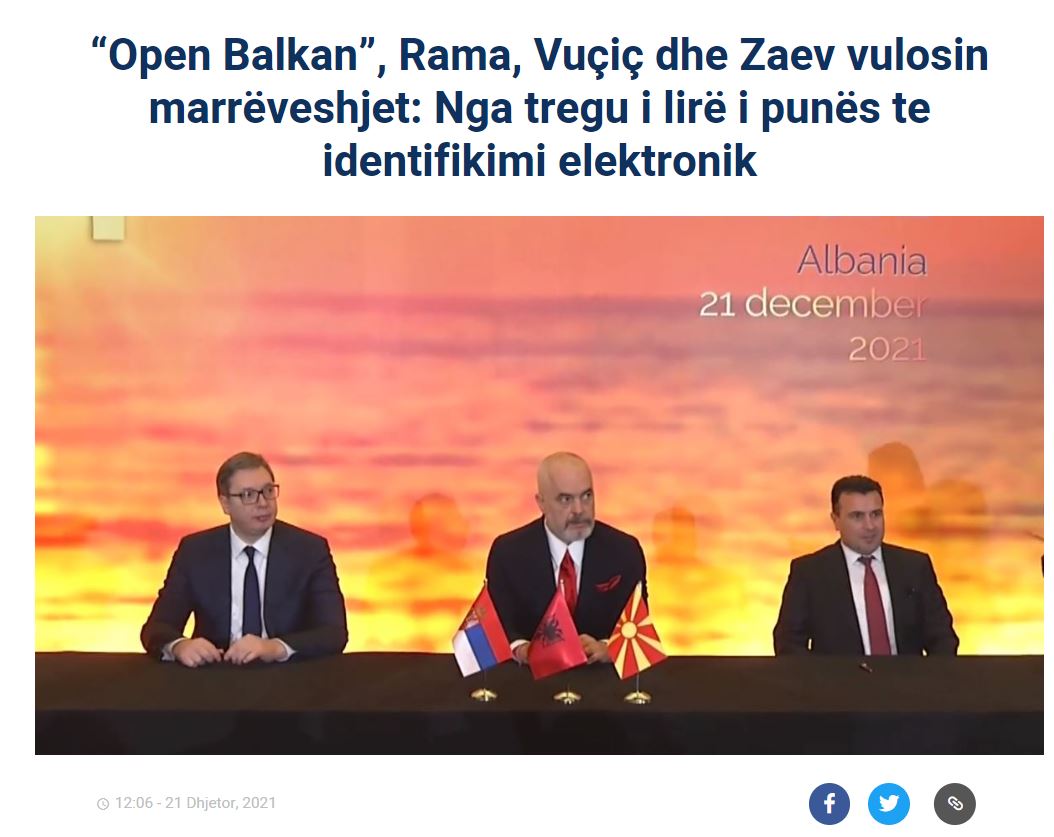
Since the signing of this agreement, it took 2 years for the three states to agree on guidelines for how this agreement would be implemented.
The two-year delay is attributed to the neglect of the work that the three governments needed to do with each other to formulate the implementation of this agreement, as reported by Faktoje in April 2023.
Ballkani i Hapur, marrëveshja për tregun e lirë të punës pa rezultat
It appears that history is repeating itself.
Everything came back into focus in early 2024 when Albania, North Macedonia, and Serbia signed protocols with each other for the implementation of the agreement on the free labor market.
Serbia used the signing of this protocol to rekindle attention to the Open Balkan initiative, which had been ‘laid to rest‘ by Albanian Prime Minister Edi Rama since July 1st, 2023, when he declared its mission fulfilled.
Despite this agreement being in existence for two years, some media outlets reported (once again) that the three neighboring countries had signed an agreement for the free labor market. Simultaneously, March 1st was announced as the deadline for when it would come into effect.

Effective on March 1st, citizens of Open Balkan can work freely in North Macedonia, Serbia, or Albania

Following the signing of the implementation protocol in January, Faktoje requested the Ministry of Finance to provide with the full text. In their response sent in early February, the Ministry of Finance stated to Faktoje that the protocol is still awaiting internal legal procedures, thus they couldn’t provide the document.
Since then, the protocol hasn’t passed through any institution for approval.
Meanwhile, in North Macedonia and Serbia, the governments have launched respective online platforms where citizens can apply to work in the host country.
For this online application to be functional, the three member states must first implement the second protocol for the electronic identification of citizens, signed on January 22nd. This protocol will facilitate the establishment of a database where citizens can apply for an identity number known as the ‘Open Balkan ID,’ enabling them to apply online for work in the host country.
This is clearly announced on the official website by Serbia.

A simple search on the Albanian government’s online portal, E-Albania, confirms that such a service doesn’t currently exist, thus preventing applications for jobs in Serbia or North Macedonia.
Additionally, we inquired with E-Albania’s virtual assistant about applying for an Open Balkan ID, but this information wasn’t retrievable from the portal’s artificial intelligence.
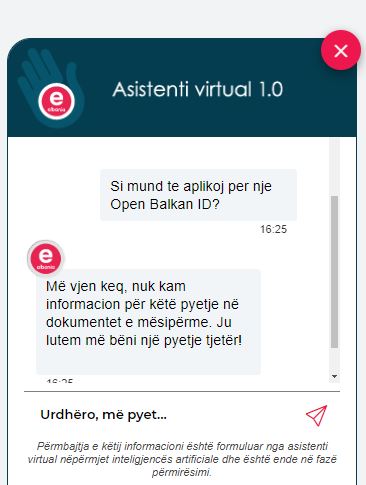
I’m sorry, I don’t have information on this question in the documents available to me. Please ask another question.
It still needs to be verified whether these online platforms operate in the two neighboring countries of Albania, North Macedonia, and Serbia. However, it is likely that the online database between the three states, which would enable obtaining an ‘Open Balkan ID’ for job applications, does not yet exist. Therefore, the ‘free labor market’ between these three states is not yet in effect.
The only information available on the Albanian government’s online platforms regarding the ‘Open Balkan ID’ is the agreement signed in 2021.
This didn’t prevent Albanian-speaking media from announcing the ‘opening’ of the free labor market between the three states on March 1st. Using a ‘copy-paste’ approach, the media circulated the announcement.
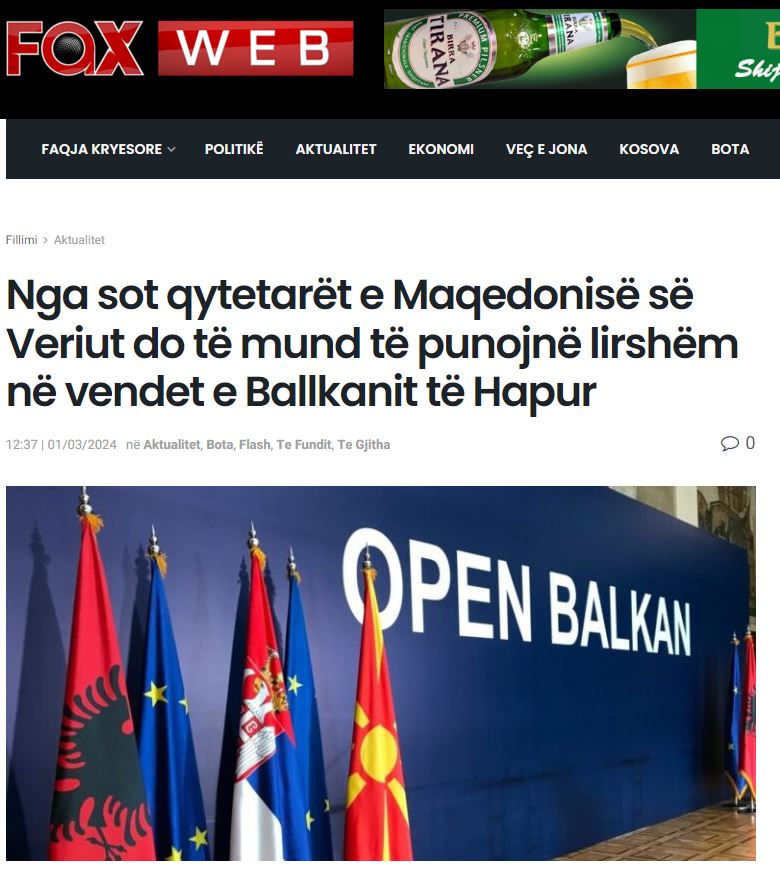
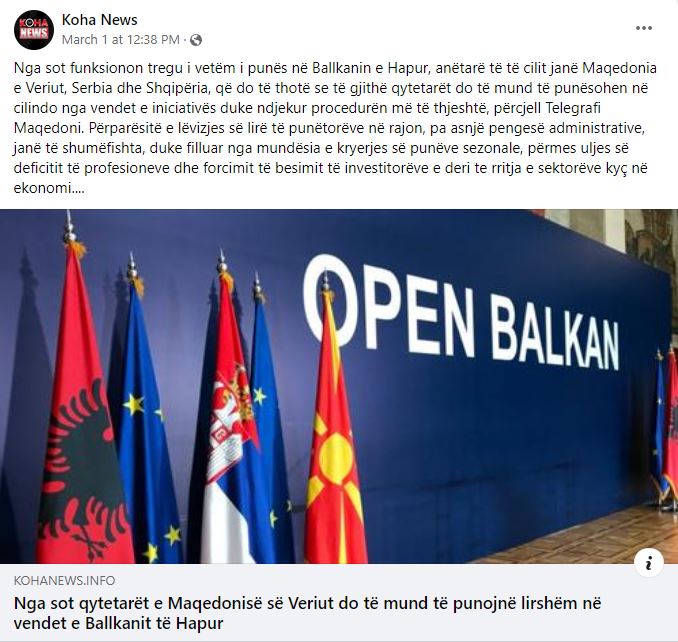
OPEN BALKAN
KOHANEWS.INFO
From today, citizens of North Macedonia will be able to work freely in the countries
of the Open Balkans


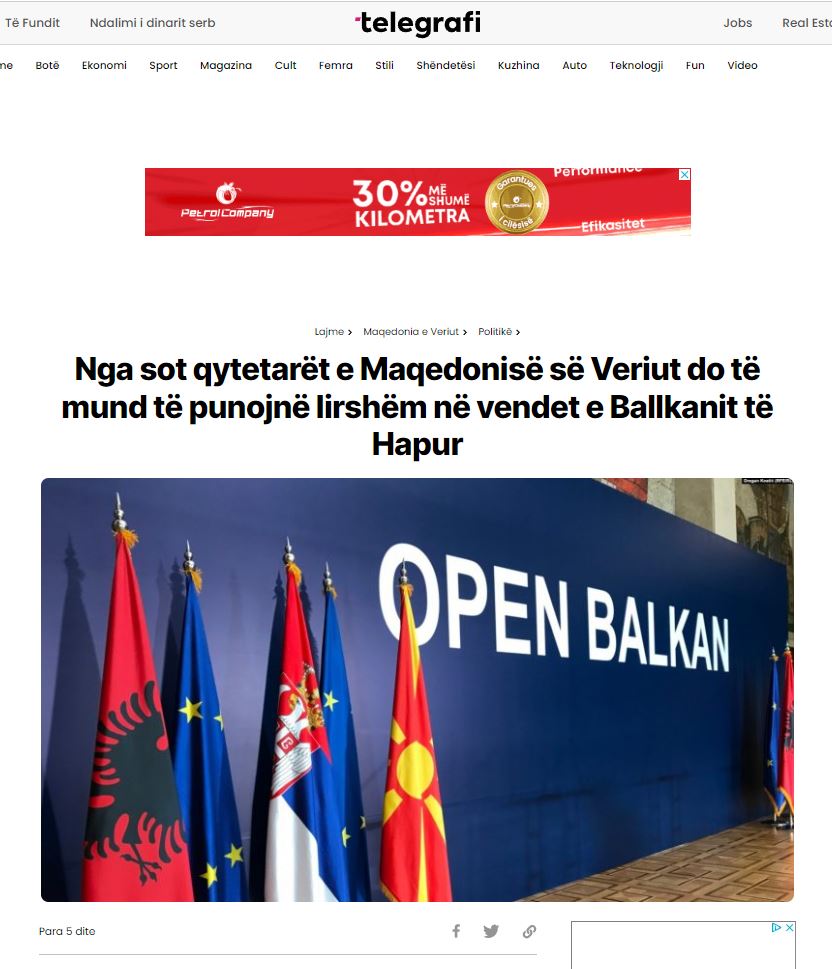
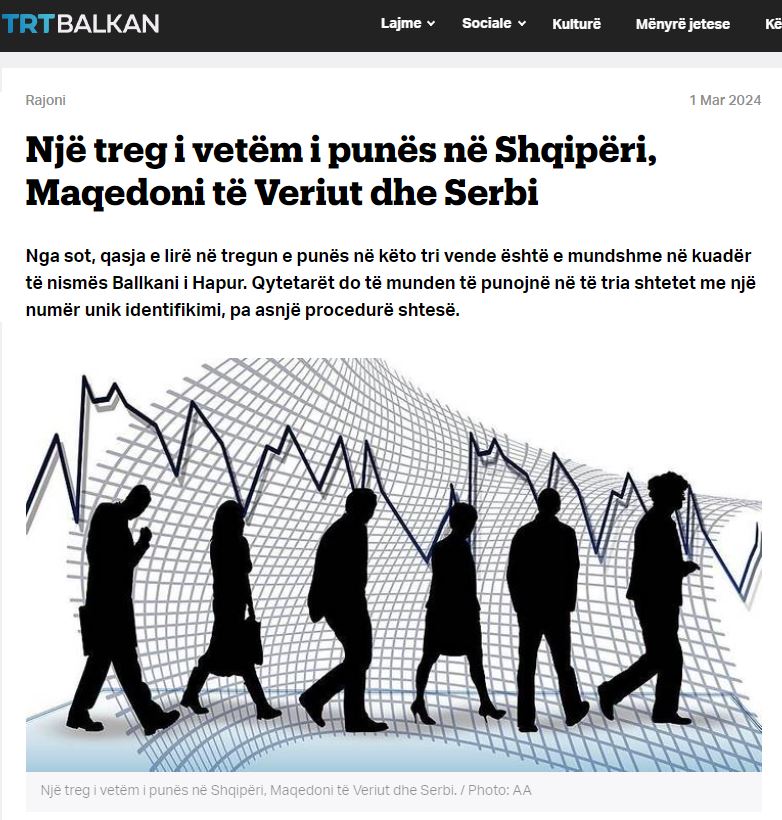
Starting today, free access to the job market in these three countries is possible within the framework of the Open Balkans initiative. Citizens will be able to work in all three states with a unique identification number, without any additional procedures.
The narrative of the launch of this market’s operation was also underscored in Serbia, disseminated in Albanian by the pro-Serbian online portal Kosovo Online.
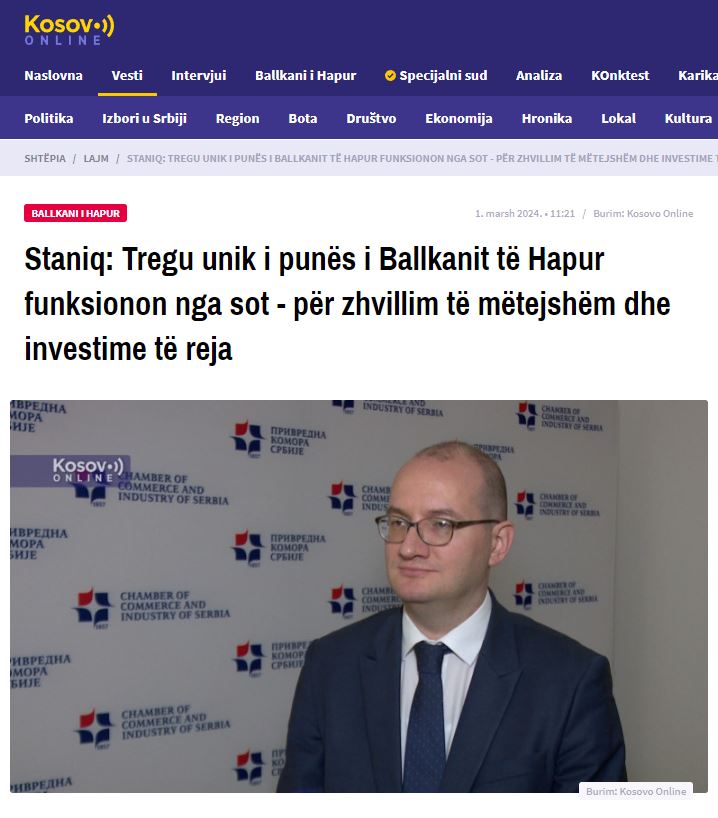
It seems that the reports of the opening of the free labor market between Albania, North Macedonia, and Serbia are merely a repetition of pro-Open Balkans propaganda, which has been ongoing for three years now without any verification.
The facts indicate that, until now, this ‘free market’ has only existed on paper. It is also uncertain how long it will take for this online application for citizens of the member states to be enabled and actually functional – if it ever happens. What is certain is that this free labor market does not yet exist.






